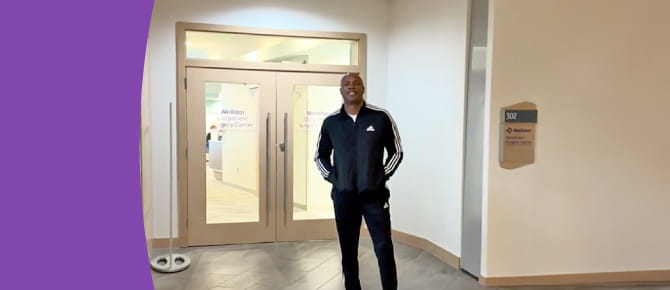
Wellstar Colon & Rectal Surgery
Wellstar Colon and Rectal Surgery provides comprehensive, supportive care
for a broad spectrum of benign and malignant intestinal conditions.
Our world-class expertise in the latest surgical techniques,
including robotic and minimally invasive procedures,
ensures patients receive the best possible care.
- Colon and Rectal Surgery
- About Us
- Risk Assessment
- People Care
- Our Team
- Our Locations
Colon & Rectal Surgery at Wellstar
Our fellowship-trained, board-certified colon and rectal surgeons at Wellstar focus on diagnosing and treating the diseases of the colon, rectum, anus, anal canal, and perianal tissues. They treat a broad spectrum of conditions, including colon and rectal cancer, anal cancer, surgical management of inflammatory bowel disease (Crohn’s disease and ulcerative colitis), diverticulitis, fecal incontinence, and benign anorectal conditions (abscess, anal fistula, anal fissure, hemorrhoids). When medically advised, we offer advanced minimally invasive approaches to colorectal surgery, including laparoscopic and robotic-assisted procedures. These techniques help minimize scarring, reduce pain, and accelerate recovery—all to get you back to living your everyday life sooner. Our colorectal professionals collaborate with other providers, including oncologists, gastroenterologists and radiologists to ensure comprehensive treatment. At Wellstar, we work together to create a plan tailored specifically to your health needs.About Us
What We Treat
- Anorectal abscess
- Anorectal abnormalities
- Anal cancer
- Anal fistula
- Anal fissure
- Colon cancer
- Colon polyps
- Colovesical fistulas
- Colovaginal fistula
- Crohn’s disease
- Diverticulitis
- Familial adenomatous polyposis
- Fecal incontinence
- Hemorrhoids
- Lynch syndrome
- Rectal cancer
- Rectal prolapse
- Rectovaginal fistula
- Ulcerative colitis
Services and Procedures
- Abdominoperineal resection
- Anal sphincterotomy
- Botox injection of anal sphincter
- Colectomy
- Colonoscopy
- Colon resection
- Colostomy closure
- Colorectal cancer screening & treatment
- Fistulotomy
- Hemicolectomy
- Hemorrhoidectomy
- Ileostomy
- Ileostomy closure
- Incision and drainage of abscess
- Laparotomy
- Lysis of adhesions
- Proctectomy
- Robotic colorectal surgery
- Robotic rectopexy
- Small bowel resection
Procedures
Until 1990, most surgeries to treat colorectal diseases required a large incision across the abdomen, opening up the intestinal cavity to perform the necessary repair. Advances in medicine, surgical techniques, and technology have set a new standard of care.While surgeons at Wellstar utilize “open” surgery techniques for some major procedures, almost all colorectal surgeries at Wellstar are performed using “minimally invasive” or laparoscopic approaches. Minimally invasive surgery involves using precise instruments and a tiny video camera through small incisions in the abdomen. Patients who undergo minimally invasive surgery recover faster, with less pain after surgery. Laparoscopic techniques are commonly used in operations to treat diverticular disease, ulcerative colitis, Chrohn’s disease, severe constipation, and rectal cancer.
Surgeons at multiple Wellstar medical centers use the da Vinci® Surgical System to assist in complex colorectal surgeries. The da Vinci® Surgical System improves the surgeon’s vision and control.
Colectomy
Colectomy is an operation to remove part or all of the large intestine (colon). Colectomies are routinely performed to treat diseases that cause painful and/or potentially dangerous symptoms. Laparoscopic colectomy involves using trocars (thin tubes) placed through small incisions. The surgeon then inflates the abdomen with carbon dioxide gas. A thin telescope is inserted through one of the trocars to allow the surgeon to see the abdomen on a high-definition TV monitor. Using specialized instruments, the surgeon removes (or resects) the colon. When the resection is complete, the surgeon has the option of immediately restoring the bowel, by stitching or stapling together both the cut ends (primary anastomosis), or creating a colostomy.
Colostomy
For a
colostomy,
a portion of the large intestine is brought through the abdominal wall to create an opening to carry feces out to a small pouch. For an ileostomy, the entire colon, rectum and anus is removed or bypassed and the lower end of the small intestine is used for the new opening.
While some colostomies are permanent, many are temporary procedures to relieve pressure on the large intestine as it heals. Due to advances in colorectal surgical techniques, colostomies overall are used in fewer and fewer procedures.




